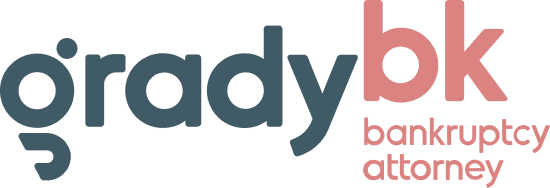It’s no secret that prices appear to be going up across the country. Americans are paying higher prices for gas, groceries, and other goods and services, worsening financial concerns for individuals and families. Recent estimates show that consumer debt balances increased by 5.4 percent in 2021, and inflation is likely to propel this number upward in the near future. If you are struggling with debt, you are far from alone. It can feel overwhelming and even hopeless, but there are some options that can help you obtain the fresh start you need. Let’s explore how filing for Chapter 7 bankruptcy relief can help you regain control of your finances and face the future with greater confidence.
Understanding Chapter 7 Bankruptcy in New York
Chapter 7 bankruptcy is the most common form of relief for those struggling with consumer debt. Individuals who have debt they just can’t pay down and can never seem to get ahead may benefit from this form of bankruptcy. When you file for Chapter 7 bankruptcy relief, you list everything you own (house, cars, clothes, money in the bank, etc.), and the law gives you exemptions to protect that property. You do not repay your dischargeable debt in a chapter 7 bankruptcy – it is wiped away; giving you a fresh start.
Exempt Property
Both state and federal laws classify certain types of property as exempt, meaning the property is protected and can not be taken from you. Exempt property typically includes clothing, household appliances, jewelry (up to a certain value), pensions, IRAs, 401(k) plans, public benefits, household goods, furnishings, and motor vehicles (up to a certain value) and house equity (up to a certain value).
Non-Exempt Property
Non-exempt property refers to property not identified by state and federal law as exempt. If you have any property that is non-exempt (there is no exemption to protect it) a Chapter 7 bankruptcy trustee could take the property and sell it. However, there are options to prevent that from happening. If possible, you can convert non-exempt property into exempt property (so it’s protected). You can also file a chapter 13 bankruptcy and protect your property by paying back a percent of your debt over a three to five-year period.
How to File For Chapter 7 Bankruptcy in New York
Once you’ve decided that Chapter 7 bankruptcy is your best option, you’ll need to gather several documents and pieces of information: A list of creditors, the amount of debt you owe each creditor, your income (including the source, amount, and frequency of income), a list of all your property, and a list of your monthly living expenses. You will also need to attend an online credit counseling course to obtain a certificate. Next, you may file a bankruptcy petition with the court.
Triggering the Automatic Stay
One main benefit of filing for Chapter 7 bankruptcy is that doing so triggers an automatic stay, preventing creditors and debt collectors from contacting you or harassing you for payments. This includes lawsuits and garnishments. As soon as you file your petition with the Bankruptcy Court, you will find much-needed relief from the stress of creditors’ constant attempts to collect money from you.
The Bankruptcy Trustee’s Role
When you file for Chapter 7 bankruptcy in New York, the court will appoint a bankruptcy trustee to oversee and manage your bankruptcy case. This individual will review your paperwork to ensure that you completed it accurately. They will then assess your non-exempt property to determine if any items can be sold. In many Chapter 7 bankruptcy cases, petitioners have little to none non-exempt property (so you’ll keep your property).
Meeting of Creditors
Finally, the trustee will hold a hearing called the meeting of creditors. While any of your creditors can attend the hearing and ask you questions about your assets or income/expenses, in reality it is rare for any creditor to attend. It is typically you, your attorney and the trustee. You’ll be sworn under oath and asked to answer questions about your financial situation. Once this hearing is over, the court will assess your case and issue a discharge about 60 days after the hearing. This means that your dischargeable debt will be wiped away and you will then be able to move forward and take steps to rebuild your credit and finances.
Compassionate Legal Guidance at Every Turn
Although bankruptcy offers many individuals and families the opportunity to regain control of their financial situations, there is still a stigma surrounding this process. Many people feel ashamed about filing for bankruptcy, as if taking this step marks them as a failure. However, filing for bankruptcy can be an empowering experience, as you are finally motivated to take control of your financial future. Working with a trusted and compassionate New York bankruptcy attorney is a great way to feel supported during this process. Your attorney will answer your questions, address your concerns, and encourage you to move through each step of the process toward a brighter future.
If you need help regaining control of your finances in Central New York or the North Country, call Grady BK, PLLC, today at (315) 299-9005 to speak with a dedicated and compassionate bankruptcy attorney.

